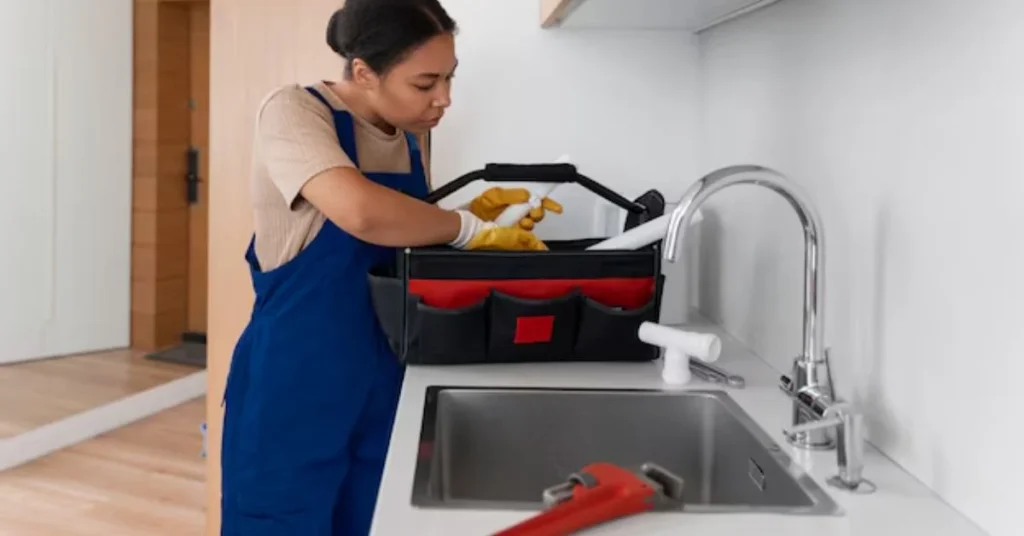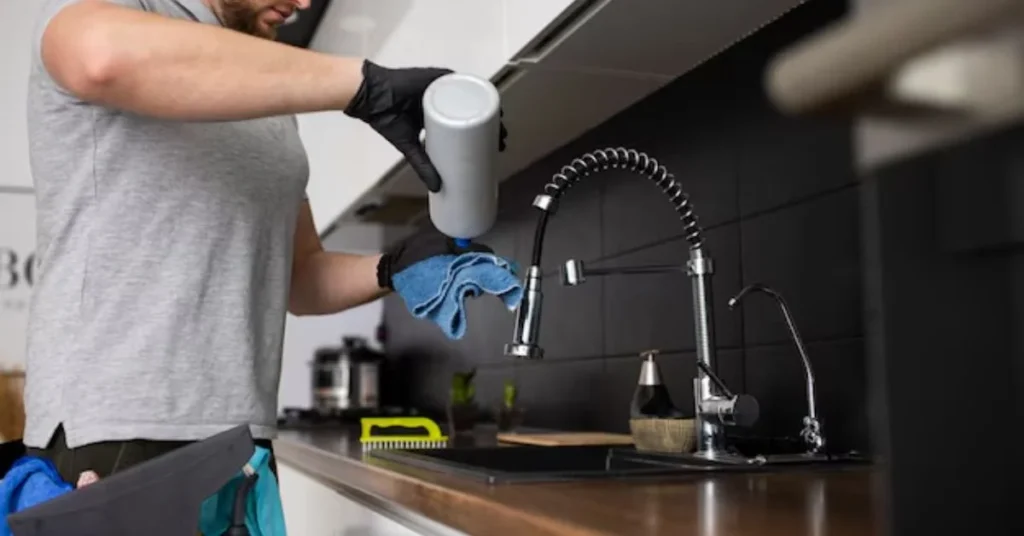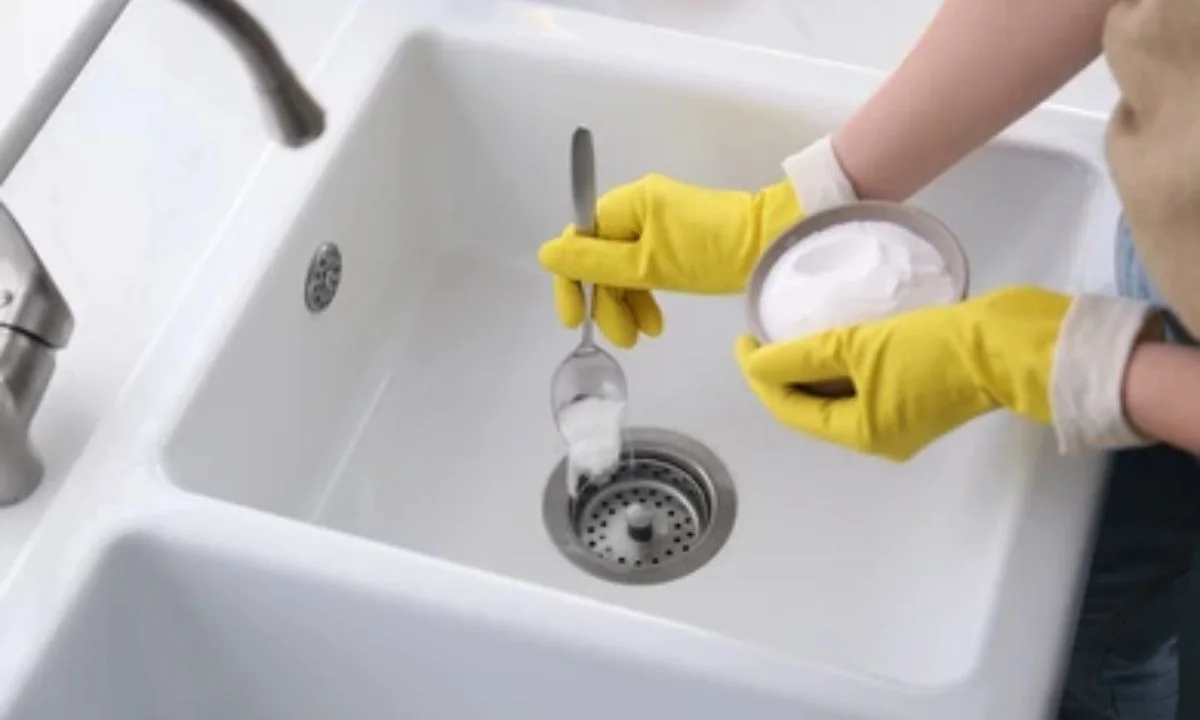Knowing how to clean kitchen sink drain is essential to keeping your kitchen clean and fresh. A blocked or smelly drain can cause discomfort and even attract unwanted pests. Luckily, there are several simple and effective ways to clean your kitchen sink drain. Whether it’s removing clogs or getting rid of bad odors, a clean drain ensures that your kitchen remains hygienic and in good working order. In this article, we’ll walk you through the best techniques and products to maintain a clog-free and fresh-smelling kitchen sink.
Why You Need to Clean Your Kitchen Sink Drain Regularly
A kitchen sink drain often collects food particles, grease, soap, and other debris that can build up over time, leading to unpleasant odors and blockages. Regularly cleaning your drain can prevent these issues, improve the flow of water, and reduce the risk of costly plumbing repairs. It’s a quick and easy task that can save you a lot of hassle in the long run.
Must read How to Clean Kitchen Cabinets
Common Signs Your Kitchen Sink Drain Needs Cleaning
- Slow Draining Water: If water takes longer than usual to drain, there’s likely a buildup of debris in the pipes.
- Bad Odors: Foul smells coming from the drain often indicate food particles and grease trapped in the pipes.
- Gurgling Noises: Strange noises when water drains signal a partial blockage.
- Recurring Clogs: If your sink frequently gets clogged, it’s a sign the drain needs a thorough cleaning.
Simple Methods to Clean Your Kitchen Sink Drain
1. Hot Water and Dish Soap
One of the easiest and most effective methods to clean your kitchen sink drain is using hot water and dish soap.
- Step 1: Boil a pot of water.
- Step 2: Pour a generous amount of dish soap down the drain.
- Step 3: Slowly pour the boiling water down the drain to melt and wash away grease and grime.
This method works well for regular maintenance and helps prevent clogs from forming.

2. Baking Soda and Vinegar
A natural and chemical-free way to clean your kitchen sink drain is by using baking soda and vinegar. This combination helps dissolve clogs and neutralize bad odors.
- Step 1: Pour 1/2 cup of baking soda down the drain.
- Step 2: Follow with 1/2 cup of white vinegar.
- Step 3: Let the mixture sit for 15-20 minutes, allowing the fizzing reaction to break down grime.
- Step 4: Flush the drain with hot water to wash away any loosened debris.
This method is perfect for weekly cleaning and keeping the drain smelling fresh.
3. Use a Plunger for Stubborn Clogs
When your sink is slow to drain or completely clogged, a plunger can help dislodge any blockages.
- Step 1: Fill the sink with enough water to cover the plunger’s cup.
- Step 2: Position the plunger over the drain and push down firmly.
- Step 3: Pull up quickly to create suction and repeat several times until the clog is removed.
Using a plunger is a quick fix for clogs caused by food scraps or debris that can be loosened with pressure.
4. Drain Snake or Wire Hanger
If you have a deeper clog, a drain snake or a makeshift tool like a bent wire hanger can help remove debris stuck in the pipes.
- Step 1: Insert the snake or wire hanger down the drain.
- Step 2: Twist and push the tool to break up and pull out the clog.
- Step 3: Remove the debris and flush the drain with hot water.
This method is particularly useful for clogs caused by hair or larger food particles.

Using Store-Bought Cleaners
While natural methods are effective, sometimes you need a little extra power to clean your kitchen sink drain. How to Clean Kitchen Sink Drain and Store-bought drain cleaners can help dissolve tough clogs quickly.
1. Liquid Drain Cleaner
Liquid drain cleaners are easy to use and work fast to dissolve stubborn clogs caused by grease, hair, and other organic materials.
- Step 1: Follow the instructions on the label.
- Step 2: Pour the recommended amount down the drain.
- Step 3: Allow the cleaner to sit for the indicated time before flushing with hot water.
Be sure to use chemical cleaners sparingly, as frequent use can damage your pipes.
2. Enzyme-Based Cleaners
Enzyme-based cleaners are a gentler option for maintaining clean drains. They use natural bacteria and enzymes to break down organic materials like grease and food.
- Step 1: Pour the enzyme cleaner down the drain according to the label.
- Step 2: Leave it overnight to allow the enzymes to work.
- Step 3: Flush the drain with warm water in the morning.
Enzyme cleaners are a great eco-friendly option for regular drain maintenance.
Preventing Future Clogs
1. Use a Drain Strainer
One of the best ways to prevent clogs is by using a drain strainer. This small, inexpensive tool catches food particles, hair, and other debris before they enter the pipes.
2. Avoid Pouring Grease Down the Drain
Grease is a common cause of clogged drains. Instead of pouring it down the sink, let it cool and throw it in the trash.
3. Run Hot Water After Each Use
After washing dishes or cleaning the sink, run hot water down the drain for a few minutes. This will help wash away any small food particles or soap residue.
4. Regularly Clean the Drain
Even with preventive measures, it’s important to clean your kitchen sink drain regularly. Using natural methods like baking soda and vinegar once a week can keep your drain flowing smoothly.

Conclusion about How to Clean Kitchen Sink Drain
Now that you know how to clean kitchen sink drain with different methods, keeping your kitchen sink free from clogs and bad odors is simple. From using natural solutions like baking soda and vinegar to relying on a trusty plunger or store-bought cleaners, maintaining a clean drain will ensure that your kitchen stays fresh and functional. Don’t forget to regularly clean and take preventive steps to avoid future blockages. A little maintenance goes a long way in keeping your sink in top shape! Visit here.
How to Clean Kitchen Sink Drain by myself?
You should clean your kitchen sink drain at least once a week to prevent buildup of food particles, grease, and soap scum.
Can I use bleach to clean my kitchen sink drain?
While bleach can kill germs, it’s not recommended for clearing clogs. Baking soda and vinegar are safer alternatives for cleaning.
What should I do if my kitchen sink drain is still clogged after cleaning?
If natural methods and a plunger don’t work, you may need to use a drain snake or call a plumber for more serious blockages.
Can I prevent kitchen sink clogs altogether?
Yes, by using a drain strainer, avoiding pouring grease down the drain, and running hot water after each use, you can greatly reduce the chances of clogs.
Is it safe to use chemical drain cleaners regularly?
No, frequent use of chemical drain cleaners can damage your pipes. It’s best to use them sparingly and rely on natural cleaning methods for regular maintenance.















